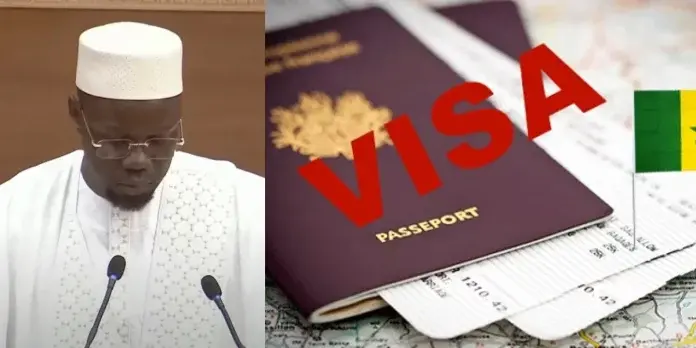- P.O. Box: 11482 Yaoundé, Cameroon; Headquarters: Efoulan, Yaoundé 3
- contact@caessinternational.org

Senegal, a country located in West Africa, recently announced its intention to apply the principle of reciprocity in its visa policy. This decision marks a significant turning point in the country’s migration policy and will have considerable geopolitical implications. Indeed, in his general policy speech before parliament on December 27, 2024, Senegalese President Ousmane Sonko stated his intention to apply the principle of reciprocity to countries that require visas from Senegalese nationals. In this regard, countries classified as Category A and B are those exempt from visas or do not require a visa to enter Senegal. Meanwhile, countries in Category C—such as China, Iran, Belarus, North Korea, and others—are subject to the application of the reciprocity principle. Implementing this principle will enable Senegal to strengthen its sovereignty and protect its nationals who face strict visa requirements when traveling abroad.
Senegal’s decision to apply the principle of reciprocity in its visa policy is motivated by the desire to protect its nationals who encounter strict travel constraints abroad. Consequently, this strengthens the country’s position in international negotiations and in defending the interests of its citizens. Geopolitically, this decision may influence Senegal’s relations with its international partners. Countries that impose visa requirements on Senegalese nationals may be prompted to reconsider their visa policies to avoid facing similar restrictions.
Economically, visa restrictions can limit trade and investment between Senegal and its international partners. However, the implementation of this principle may also encourage partner countries to review their visa policies and establish more balanced trade relations with Senegal. Socially, visa restrictions can limit the mobility of people and their opportunities for education and work abroad. Moreover, applying this principle may encourage partner countries to reconsider their visa policies and build friendlier relations with Senegal.
In summary, Senegal’s decision to apply the principle of reciprocity in its visa policy represents an important shift in the country’s migration strategy. This decision will have notable geopolitical, economic, and social implications. For this reason, it is essential to closely monitor developments in this area to understand the potential consequences for Senegal and its international partners.